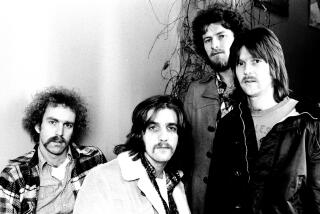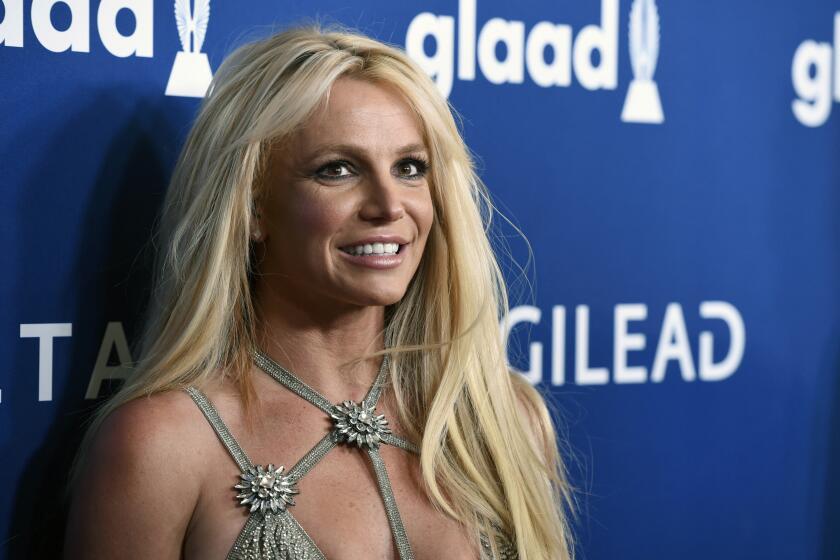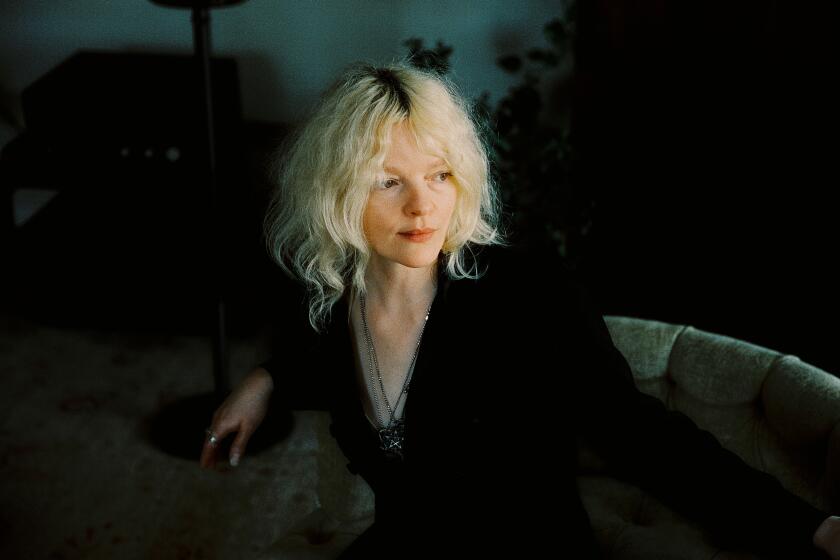WHAT HAPPENS TO POP MUSIC STARS AFTER THE CRUSADE? : With the Release of His Album, Live Aid’s Bob Geldof Now Faces a Test of His Music
He’s been dubbed “Saint Bob” by the British press.
He’s been nominated for a Nobel Peace Prize.
And he’s been declared an honorary knight by Queen Elizabeth II.
But will U.S. record buyers make him a best seller?
That’s the question surrounding Bob Geldof’s first solo album--”Deep in the Heart of Nowhere,” due in stores on Monday from Atlantic Records.
The fact that Geldof has a new album would not have been big news before the Irish singer-songwriter became the catalyst of the 1985 pop music crusade that focused international attention on famine in Africa.
As leader of the Boomtown Rats in the late ‘70s and early ‘80s, Geldof didn’t come close to a hit in this country. Indeed, his band was dropped by Columbia Records last year after the group’s latest effort sold fewer than 75,000 copies.
Geldof also wasn’t a favorite among most critics. The Rats’ music, which reflected much of the brashness, but little of the revolutionary soul of the early punk movement in England, was an uneven mixture of high ideals and heavy-handed cynicism.
But Geldof’s contributions to famine crusade--highlighted by the Live Aid concerts that raised more than $80 million--earned him an appreciation and respect that has made his new album one of the year’s most eagerly awaited releases.
It would be a nice continuation of the Live Aid story to be able to report that Geldof’s stature as a musician now equals his standing as a humanitarian.
The experiences of the last two years have led to changes in his music. In its best moments, “Deep in the Heart of Nowhere” offers personal and endearing touches that seem more eloquent and heartfelt than much of the music Geldof made with the Rats.
Yet the album is handicapped by an apparent conflict between Geldof’s desire to reflect on the sometimes sobering, sometimes uplifting experiences of his Live Aid stewardship and a fear of ending up a pompous or indulgent spokesman.
This dichotomy leads hims to pull punches at key times. He turns to neutral themes or relies on overly familiar pop/rock reference points to make sure the audience doesn’t think it is being subjected to a lecture. He uses worn images (“In the Pouring Rain”) when he speaks of social ills and safe musical arrangements (the album moves from Bowie romanticism to Dylan bite to Hall and Oates slickness to a hint of Spectorian drama).
Geldof is also torn between the optimism of seeing millions of people respond to the Live Aid message and the pessimism of a world whose indifference allows millions more to suffer. Underscoring the latter conflict, he says in one song, “I wish that I believed enough to pray.”
He seems most natural on “When I Was Young,” recalling the anything-is-possible bravado of a young musician, and on “Night Turns to Day,” a statement of hope expressed to a child.
In “When I Was Young,” Geldof recounts the innocence and determination of youth, vowing, “I would do a million things/ Dreaming up a 1,000 schemes/ I would change the world each night . . . “
It is endearing to listen to the song now and realize that Geldof did change the world, at least for an instant, but in ways he never dreamed.
“Night Turns to Day” is the album’s summary statement. On one hand, he wants to protect his child from the ugliness of the world, yet he doesn’t ever want the child to close his eyes to the “crimes” of indifference. He sings, “Innocence will always be the only/ True moral alibi/ But I should never try to protect you/ From being aware of our crimes.”
Geldof is joined on “Deep in the Heart of Nowhere” by an all-star cast including Eric Clapton, Dave Stewart, Annie Lennox, Brian Setzer, Alison Moyet and Maria McKee. It remains, however, a deeply personal work whose main fault, ironically, is that Geldof doesn’t trust his social instincts enough.
However much the continuing suffering in Ethiopia suggests a world that doesn’t care about its neighbors, Geldof did bring the pop community together for a moment and he should have had more faith that he could stir them once again.
More to Read
The biggest entertainment stories
Get our big stories about Hollywood, film, television, music, arts, culture and more right in your inbox as soon as they publish.
You may occasionally receive promotional content from the Los Angeles Times.






